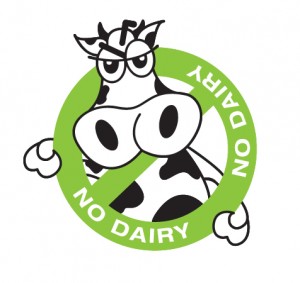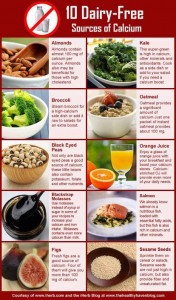Alternatives to dairy
Don’t like dairy or do you suffer from any of the following?
- Discharges from nose or other parts of the body;
- Frequent colds;
- Asthma;
- Sinus problems;

- Tumours/cysts;
- Constipation/abdominal cramps/gas/diarrhoea;
- Candida;
- Excess weight; and/or
- Thick tongue coating.
If so you may be allergic or intolerant to dairy products. Allergies and intolerances are not the same thing. An allergy is an inappropriate response by the body’s immune system usually to proteins. An intolerance is the inability to digest and process food correctly.
Cow’s milk is the most common food allergen. Cow’s milk allergies may manifest as skin rashes, eczema, chronic fluid and infections in the ears and hyperactivity. These allergies are usually due to casein and lactalbumin proteins in cow’s milk.
Nearly half of the world’s population is lactose intolerant and symptoms of lactose intolerance are usually bloating, abdominal pain and diarrhoea after milk is consumed. This is due to the majority of human’s not being able to digest the lactose (milk sugar). The body produces Rennin (an enzyme that breaks down lactose) up until the age of 7-8. Generally this enzyme is no longer produced and children, adolescents and adults will not be able to digest lactose properly.
Even though cow’s milk can be a problem, fermented dairy products can generally be tolerated such as buttermilk, kefir, yoghurt and cottage cheese as they are already pre-digested and the souring process also converts lactose to lactic acid.
Goat’s milk can be a good substitute for cow’s milk as it is richer in minerals and nutrients and is usually more easily digested. Some children may not be able to tolerate goat’s milk although most do well with it.
Soy milk, nut milks, rice milk, oat milk, millet milk or coconut milk are all good substitutes if neither cow nor goat milk is tolerated.
Dairy does not need to be consumed at all and it is possibly more beneficial if it is avoided in adult years. Although plain yoghurt/kefir are considered the health foods of the milk family and could be used in the diet to assist the body with friendly bacteria.
Some of the main nutrients that are in dairy products which can be found in other foods are calcium, fat soluble vitamins D and A, B group vitamins, iron and phosphorus.
Other sources of calcium include:
- Green leafy vegetables;
- Broccoli (raw);
- Legumes (soybeans), nuts (almonds), seeds (sunflower seeds, sesame seeds), grains (Quinoa and Amaranth);
- Potatoes;
- Figs and apples; and
- Calcium fortified cereals, breads and juices.
Other sources of B Vitamins include:
- Wholemeal breads/flours;
- Nuts (almonds, hazelnuts, cashews, peanuts, brazil nuts);
- Avocados;
- Bananas ;
- Mushrooms;
- Eggs;
- Green leafy vegetables; and
- Meat/salmon/sardines/oysters.
Other sources of fat soluble vitamins D and A include:
- Apricots;
- Carrots;
- Fish oils;
- Eggs; and
- Sunlight.
Other sources of iron include:
- Red meat and chicken;
- Spirulina;
- Oysters;
- Apricots; and
- Pine nuts.
Other sources of phosphorus include:
- Nuts (almonds, cashews);
- Chicken;
- Chickpeas;
- Eggs;
- Garlic; and
- Fish (salmon, tuna, sardines).
- Rice Milk
- Soy Milk including Malt Free Soy Milk
- Almond Milk
- Hazelnut milk
- Millet Milk
- Oat Milk
- Dari-Free Milk Alternative – original & chocolate
- Goat’s Milk or Goat’s milk Powder – may be tolerated
- Goat’s Yoghurt – may be tolerated
- Goat’s cheese/feta – may be tolerated
- Sheep’s yoghurt – may be tolerated
- Sheep’s cheese/feta – may be tolerated
- Soy yoghurts
- Soy Cheeses including parmesan
- Nut cheeses for those that can’t tolerate soy
- Tofutti dairy-free sour cream, cream cheese, mozarella & american slices
- Ghee
- Coconut yoghurt
- Coconut ice cream
For more information or testing for intolerances, contact Megan. Or do you need suggestions/recipes for a personalised eating plan now that you are dairy free? Contact Megan on 0417 679 287 for a consult.
![]() 27/09/2012
27/09/2012 
![]() Articles
Articles 
![]() 0 Comment(s)
0 Comment(s)



Comments
There are no comments yet!